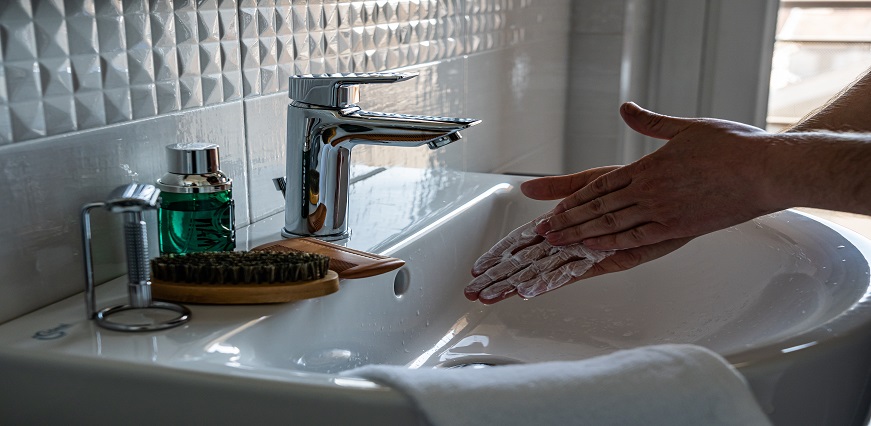





No lab centers are available in this city

We'll be discussing a common and highly contagious viral infection that affects young children - Hand, Foot and Mouth disease. This illness may sound harmless, but it can cause discomfort and inconvenience for both the child and parents. In this article, we will cover everything you need to know about Hand, Foot and Mouth disease including its symptoms, causes, home remedies as well as treatment options. So let's dive in!
Hand, Foot, and Mouth disease is a common viral infection that often affects young children under the age of 5. It is caused by various strains of coxsackievirus and enterovirus. The illness gets its name from the appearance of sores or blisters on the hands, feet, and mouth areas.
The symptoms typically start with a fever, sore throat and reduced appetite within three to five days after exposure to the virus. This may be followed by small red spots in the mouth or throat which may develop into painful ulcers that make eating difficult for young children.
A day or two later, a rash may appear on the palms of hands, soles of feet and sometimes buttocks. The rash consists of flat or raised red spots that turn into tiny fluid-filled blisters which can be very itchy but usually heal without scarring within seven to ten days.
Hand washing is important when managing Hand, Foot and Mouth disease as it can help prevent the spread to other people who come in contact with infected feces, saliva or nasal discharge.
Hand, Foot and Mouth disease (HFMD) is a highly contagious viral infection that affects young children. The symptoms of HFMD usually appear within 3-5 days after exposure to the virus.
The most common symptom of HFMD is fever. Children infected with the virus may develop a high temperature which lasts for several days.
Another symptom of HFMD is mouth sores. These sores may start as red spots on the tongue, gums or inside cheeks, then turn into painful blisters.
In addition to mouth sores, children with HFMD may develop skin rashes on their hands and feet. These rashes are typically small red bumps that can be itchy and uncomfortable.
Some children with HFMD may also experience loss of appetite, headache, sore throat and muscle aches. In rare cases, severe complications such as meningitis or encephalitis can occur.
It's important to note that not all children infected with the virus will exhibit symptoms. Some may have no symptoms at all but still carry the virus and spread it to others through coughing or sneezing.
Hand, Foot and Mouth disease is caused by a group of viruses called Enteroviruses. These viruses are highly contagious and can spread through direct contact with an infected person's saliva, mucus, or feces.
The transmission of the virus usually occurs in places where there are large groups of children such as schools, daycare centers or playgrounds since they tend to touch their mouths frequently without washing their hands properly. Moreover, poor hygiene practices like not washing hands after using the toilet may also lead to infection.
Another cause of this disease is contaminated objects or surfaces that have been touched by an infected person. Toys, doorknobs, and utensils can harbor these viruses for several hours hence it's important to disinfect them regularly.
In some cases, pregnant women who become infected with Hand, Foot and Mouth disease may transmit the virus to their unborn child which poses a risk for stillbirths or miscarriages.
While anyone can contract Hand Foot and Mouth Disease at any age but children under 5 years old are more susceptible due to their weaker immune systems compared to adults.
Hand, Foot, and Mouth disease is a common viral illness that primarily affects young children. Although it usually resolves on its own within a week or two, the symptoms can be uncomfortable for your child. Luckily, there are several home remedies that can help ease your child's discomfort and speed up their recovery.
One of the most effective home remedies for Hand, Foot and Mouth disease is to keep your child hydrated by encouraging them to drink plenty of fluids. This will help prevent dehydration which can occur due to fever, mouth sores or lack of appetite.
You can also soothe the painful blisters in your child's mouth by giving them cold drinks like milkshakes or smoothies. You should avoid acidic foods like citrus fruits as they may exacerbate the pain from the blisters.
Another simple remedy is to give your child salt water gargles as this helps alleviate sore throat caused by the HFMD virus. In addition, you can also use over-the-counter pain relievers such as acetaminophen (Tylenol) or ibuprofen (Advil) to relieve fever and body aches associated with HFMD.
To reduce rashes on hands and feet area you could apply calamine lotion which helps provide relief from itchiness due to rash formation during HFMD infection.
These home remedies won't cure Hand, Foot and Mouth disease but they'll certainly make things easier for both you and your little one while he/she recovers from this viral illness at home.
The treatment of Hand, Foot and Mouth disease mainly focuses on managing the symptoms rather than curing the infection itself. Over-the-counter pain relievers like ibuprofen or acetaminophen can help reduce fever and relieve pain caused by mouth sores. It is important to note that aspirin should not be given to children suffering from HFMD as it can lead to a rare but serious condition called Reye's syndrome.
Oral care is also crucial in treating HFMD as mouth sores may cause difficulty in eating and drinking. Gargling with warm salt water or using medicated mouth rinses may provide relief for sore throat or mouth ulcers. Additionally, avoiding acidic, spicy, or salty foods can also help reduce discomfort.
In severe cases where complications arise such as dehydration due to refusal of fluids intake, hospitalization may be required for intravenous (IV) fluid replacement therapy. In rare cases where neurological complications occur, antiviral drugs might be prescribed.
Prevention of Hand, Foot and Mouth disease is crucial to keep yourself and others around you safe. The best way to prevent this viral infection from spreading is by maintaining proper hygiene. Make sure to wash your hands frequently with soap and warm water for at least 20 seconds. Avoid close contact with infected individuals or contaminated surfaces.
If you have contracted the virus, it's important to avoid going outside until all symptoms subside completely. Use a mask if you must go out in public places.
Also, ensure that your children are taught basic hygiene practices such as washing their hands properly and covering their mouths while coughing or sneezing.
Hand, Foot, and Mouth disease may seem like a minor illness but can cause severe discomfort if not treated timely. Always look for early signs of the infection and take necessary steps before the situation escalates further. By following simple hygiene practices and seeking medical attention when required, we can keep ourselves safe from this contagious disease!
 Allergy Test
Allergy Test
 Anemia Test
Anemia Test
 Auto immune
Auto immune
 Blood disorder
Blood disorder
 Bone and Joint
Bone and Joint
 Cancer Test
Cancer Test
 Cardiology Test
Cardiology Test
 Covid Recovery
Covid Recovery
 Dengue Test
Dengue Test
 Depression
Depression
 Diabetes Test
Diabetes Test
 Fatigue
Fatigue
 Fever Test
Fever Test
 Full body
Full body
 Gastro Test
Gastro Test
 Gastrointestinal
Gastrointestinal
 Gynaecology Test
Gynaecology Test
 Heart Test
Heart Test
 HIV Test
HIV Test
 Hormone Test
Hormone Test
 Hypertension
Hypertension
 Immunity Test
Immunity Test
 Infectious Disease
Infectious Disease
 Infertility Test
Infertility Test
 Influenza Test
Influenza Test
 Iron Test
Iron Test
 Kidney Test
Kidney Test
 Liver Test
Liver Test
 Lung Test
Lung Test
 Nephrology
Nephrology
 Obesity
Obesity
 Orthopedics Test
Orthopedics Test
 Physician
Physician
 Pollution Health Checkup
Pollution Health Checkup
 Pregnancy Test
Pregnancy Test
 Prostate Test
Prostate Test
 Senior Citizen Test
Senior Citizen Test
 STD Test
STD Test
 Thyroid Test
Thyroid Test
 Tuberculosis Test
Tuberculosis Test
 Vitamin Test
Vitamin Test
 Women Health Test
Women Health Test
Sign up takes less than 60 secs and gives you access to your offers, orders and lab tests.
Looks like you are not registered with us. Please Sign up to proceed
OTP will be sent to this number by SMS
We have successfully received your details. One of the agents will call you back soon.
 To reach our help desk call 9213188888
To reach our help desk call 9213188888
No Lab Centers are available in this city
Looks like you are not registered with us. Please Sign up to proceed
OTP will be sent to this number by SMS
Not Registered Yet? Signup now.Looks like you are not registered with us. Please Sign up to proceed





 7982100200
7982100200.png)